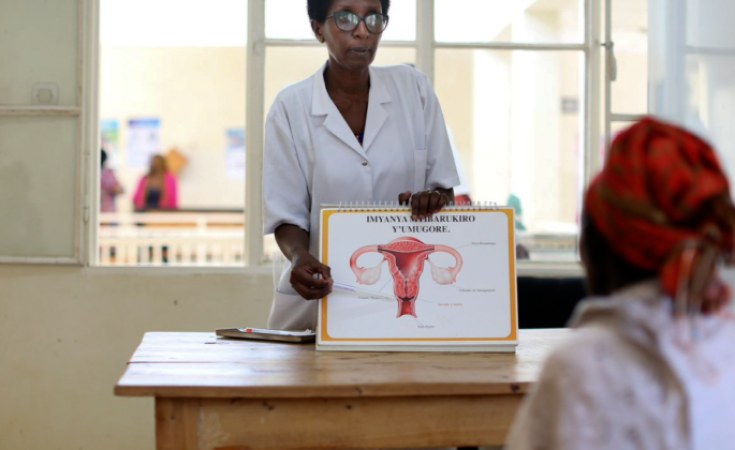Over 35 million new cancer cases are predicted globally in 2050, with Least Developed Countries (LDCs) like Lesotho likely to bear the biggest brunt.
The figure represents a huge increase of more than 70 percent from the estimated 20 million cancer cases that existed globally in 2022.
According to the World Health Organization (WHO)'s cancer agency, the upsurge in cancer cases will be a result of population growth, ageing populations and exposure to various risk factors.
Lesotho is likely to be one of the LDCs to bear the scourge.
Cervical cancer ranks as the most ubiquitous cancer among women between 15 to 44 years of age in Lesotho. It is also one of the leading causes of death among women.
At least 362 of 541 women diagnosed with cervical cancer annually die from the disease, according to Ministry of Health statistics.
According to a report by the WHO's International Agency for Research on Cancer (IARC), tobacco, alcohol and obesity are key drivers behind the increasing incidences of cancer, with air pollution also a key environmental risk factor.
Head of the Cancer Surveillance Branch at IARC, Dr Freddie Bray, said in the report the impact of the upsurge in cancer cases will not be felt evenly across the globe. Underdeveloped countries will bear the biggest brunt.
"Those who have the fewest resources to manage their cancer burdens will bear the brunt of the global cancer burden," says Dr Bray.
Deputy Head of the Cancer Surveillance Branch at IARC, Dr Isabelle Soerjomataram, said women in lower Human Development Index (HDI) countries were 50% less likely to be diagnosed with breast cancer than women in high HDI countries. They were therefore at a much higher risk of dying of the disease, due to late diagnosis and inadequate access to quality treatment.
Head of the Union for International Cancer Control (UICC), Dr Cary Adams, said that despite progress that had been made in the early detection of cancers, and the treatment and care of cancer patients "significant disparities in cancer treatment outcomes existed, not only between high- and low-income regions of the world, but also within countries".
"Tools exist to enable governments to prioritize cancer care, and to ensure that everyone has access to affordable, quality services. This is not just a resource issue but a matter of political will," Dr Adams said.
The global WHO survey showed that only 39% of participating countries covered the basics of cancer management as part of their financed core health services for all citizens.
Only 28% of participating countries additionally covered care for people who require palliative care, including pain relief in general, not just linked to cancer.
Last week Lesotho's Minister of Finance and Development Planning, Retṧelisitsoe Matlanyane, allocated the Ministry of Health a whopping M3.4 billion for the 2024-25 fiscal period. It was not immediately clear what portion of the budget will be devoted to dealing with the scourge of cancer.
Meanwhile, three major global cancer types in 2022 were lung, breast, and colorectal cancers.
There were an estimated 20 million new cancer cases and 9.7 million cancer deaths in 2022.
Lung cancer was the most commonly occurring cancer worldwide with 2.5 million new cases accounting for 12.4% of the total new cases.
Female breast cancer ranked second (2.3 million cases, 11.6%), followed by colorectal cancer (1.9 million cases, 9.6%), prostate cancer (1.5 million cases, 7.3%), and stomach cancer (970 000 cases, 4.9%).
Lung cancer was the leading cause of cancer deaths accounting for 1.8 million or 18.7% of the total cancer deaths, followed by colorectal cancer (900 000 deaths or 9.3%), liver cancer (760 000 deaths or 7.8%), breast cancer (670 000 deaths or 6.9%) and stomach cancer (660 000 deaths or 6.8%).
Breast cancer was the most popular cancer in women in many countries (157 of 185).
For men, prostate and colorectal cancers were the second and third most commonly occurring cancers, while liver and colorectal cancers were the second and third most common causes of cancer deaths.
For women, lung and colorectal cancers were second and third for both the number of new cases and of deaths.


